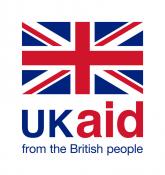
Improving organizational effectiveness of national library consortia
National library consortia play a pivotal role in the research and knowledge systems of many countries, ensuring that universities and research institutions– and their staff and students – have access to the information they need.
Building on the work of the earlier PERI programme, INASP worked with national library consortia and equivalent bodies under the Strengthening Research & Knowledge Systems programme to strengthen their organisational capacity and effectiveness. The aim was to enable them to play stronger roles nationally, and to represent the needs of universities and research institutes in relationships with publishers and other suppliers.
In addition, we worked with consortia to enable them to provide skills training programmes to their members, and to develop their own training and facilitation skills.
Working Together to Support Research
For consortia to play an effective role in national research and knowledge systems, strong relationships with other national research organisations are key. Our Work Responding to needs identified by partners, we developed a new approach to stimulating collaboration, known as Working Together to Support Research. Through this process, consortia took a convening role, identifying and bringing together key stakeholders to identify shared problems and propose collective solutions – focusing on accessing and communicating research.
Experienced researchers, journal editors, librarians, IT staff and policymakers came together to identify high-priority common problems. They then used a problem-solving methodology to ascertain the root causes and devise solutions. The participants used their knowledge and experience to decide the focus, drive the discussions and set the course for solving the problems.
The process ran in six countries (Ghana, Tanzania, Ethiopia, El Salvador, Nicaragua and Cuba), led by independent facilitators.
Leading in the Library: a Learning Lab
In 2016 we developed a new project to strengthen the organizational effectiveness of library consortia in Ghana, Kenya, Uganda and Zimbabwe, in partnership with Caplor Horizons.
Known as Leading in the Library, the project focused on three key elements of organizational effectiveness – Leadership, Strategy and Influencing – issues that were identified in all four countries as areas for support.
- Leadership: supporting the consortia to nurture transformational leaders
- Strategy: enabling consortia leadership to review and develop robust strategies for a sustainable future
- Influencing: enabling the consortia to achieve wider support and commitment to the idea that access to research is vital for national development.
The project took inspiration from the idea of a ‘learning lab’, blending faciltiated learning sessions with webinars and mentoring. An initial series of scoping meetings in each country was followed by two forums in each country. Consortia were supported to lift their vision, communicate their strategy in a compelling way and explore the areas that would help them to work more effectively in terms of leadership, strategy and influence. Caplor Horizon’s network of advisors from business and public sector organisations was mobilised to provide expert support on each priority area.
As well as supporting each consortium to address their own needs, the project brought consortia together online, and through a face to face regional event, to enable greater cross-consortia learning
As a result of attending the ‘Leading in the Library’ Learning Lab, a well thought through, more precise and easy to remember, and implement strategic plan was drafted. CUUL now has a clear and manageable strategic plan. The meetings also resulted in formulation of some financial sustainability goals.
Achievements
As of March 2018, 10 national library consortia or equivalent bodies are now negotiating directly with publishers on behalf of universities and research institutes.
Combining different approaches to support greater local ownership, agency and sustainability
- In our work with library consortia we have used regional events to foster supportive peer networks, incorporated Training of Trainers approaches within workshops to enable participants to train other colleagues, and to reinforce learning.
By bringing partners together through country and regional meetings we have encouraged the exchange of ideas, sought to emphasise local leadership, and aimed to foster the development of relationships to encourage future peer support.
- We have worked with the more experienced library consortia to provide peer support to less experienced consortia. A mentoring relationship has enabled then Kenyan library consortium to support their Ethiopian colleagues. We have also brought the strongest consortia from Ghana, Kenya, Uganda and Zimbabwe to learn together, including at major publishing events.





